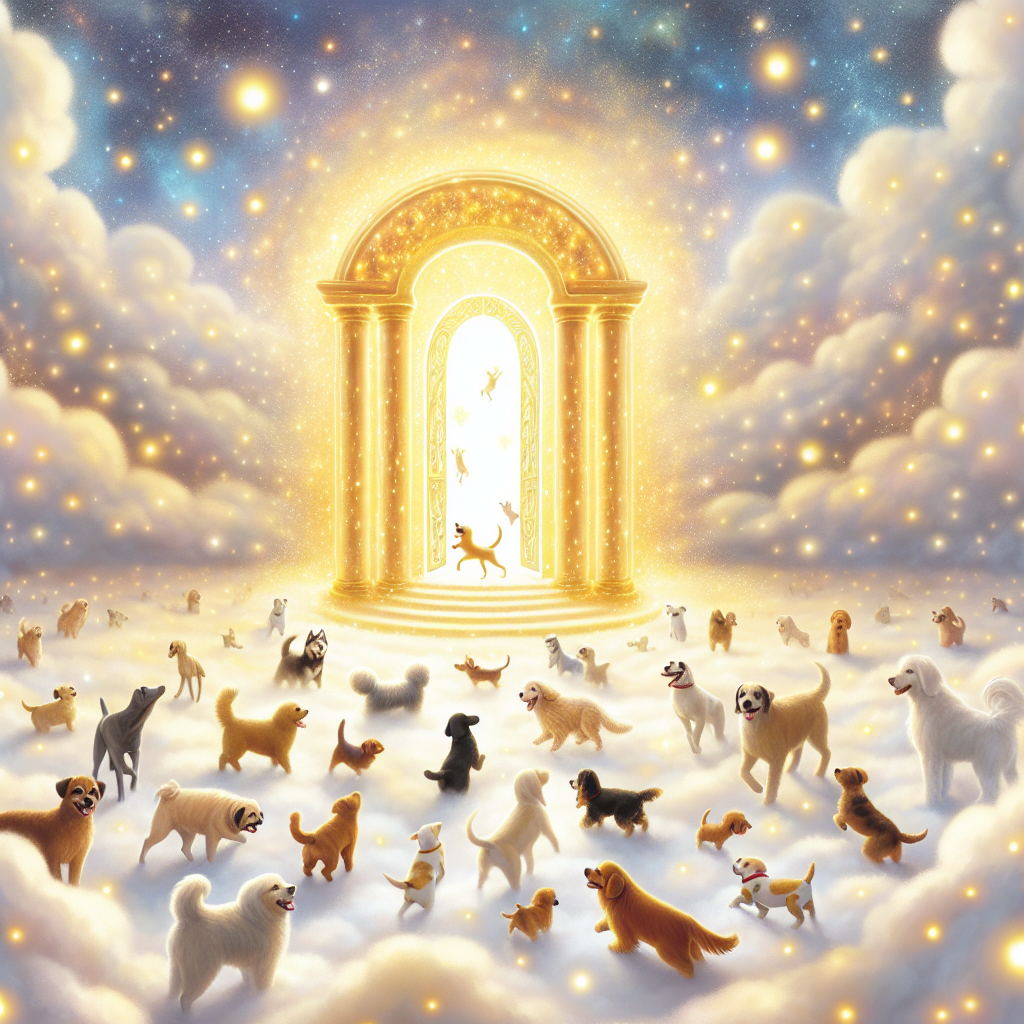Do Dogs Go to Heaven? A Heartfelt Exploration
The question, "Do dogs go to heaven?" often stirs deep emotions and reflections on the bond between humans and their furry companions. This inquiry combines theology, philosophy, and a healthy dose of sentimentality, as many pet owners find themselves grappling with loss and the hope of reunion after death. In this article, we will explore various perspectives on this profound question, touching on religious beliefs, cultural interpretations, and the palpable human-animal connection.
The Spiritual Perspective
Throughout history, various religious traditions have presented diverse views on the afterlife and the fate of animals, including dogs. In Christianity, the concept of Heaven is primarily associated with the souls of humans. Some theologians argue that animals, including dogs, do not possess immortal souls in the same way humans do. However, many believers find solace in the idea that God’s love extends to all creations and envision a Heaven where beloved pets may exist.
Pope Francis famously suggested that animals can be part of God’s kingdom, saying, "The animals go to heaven — yes, my friends, and so I hope to meet my dog again in paradise." This statement brought comfort to many and sparked discussions on the spiritual significance of pets in our lives.
Other Religious Views
In addition to Christianity, other world religions have distinct beliefs regarding animals and the afterlife. For instance, in Buddhism, the understanding of existence is not limited to a single lifetime. It encompasses the belief in reincarnation, wherein animals and humans alike accumulate karma through their actions. Thus, the fate of a dog could hinge on the actions and spiritual development of the individual throughout multiple lifetimes.
Similarly, in Hinduism, animals are considered sacred, and the souls of dogs can reincarnate into different forms based on the karma accrued. This perspective promotes a deep respect for all living beings, encouraging compassion towards animals.
Cultural Interpretations
Cultural beliefs and traditions often influence perceptions about dogs and the afterlife. In many Native American cultures, animals hold significant spiritual meaning and are viewed as guides and protectors. The thought that a dog could transition into a spiritual realm provides comfort and fosters a sense of interconnectedness with nature.
In modern society, the bond between humans and dogs has grown increasingly profound. For many, dogs are not just pets but integral members of the family. This intimate connection intensifies the desire to believe in a Heaven where beloved companions await their humans, fostering a sense of hope and peace amidst grief.
The Psychological Aspect of Grief
The death of a pet can elicit deep sorrow and mourning. Research indicates that the human-animal bond can be just as impactful as that between humans. Losing a dog can evoke feelings of loneliness, emptiness, and heartbreak. The question of whether dogs go to heaven may serve as a coping mechanism for many grieving pet owners, allowing them to find solace in the idea of a reunion.
Conclusion
While the question of whether dogs go to heaven may not have a definitive answer, it taps into the core of our emotional and spiritual beliefs. Dogs have been our loyal companions, providing unconditional love, joy, and comfort. Whether one believes in an afterlife for pets or not, the memories, love, and lessons shared with them remain with us, shaping our lives in profound ways.
Ultimately, the answer lies within each person’s heart and belief system. The legacy of our canine companions resonates beyond their physical presence, inviting us to cherish the moments we’ve shared and to honor their spirit in our lives. In many ways, they never truly leave us; they continue to live in our hearts, memories, and perhaps, in a place we dream of as Heaven.





